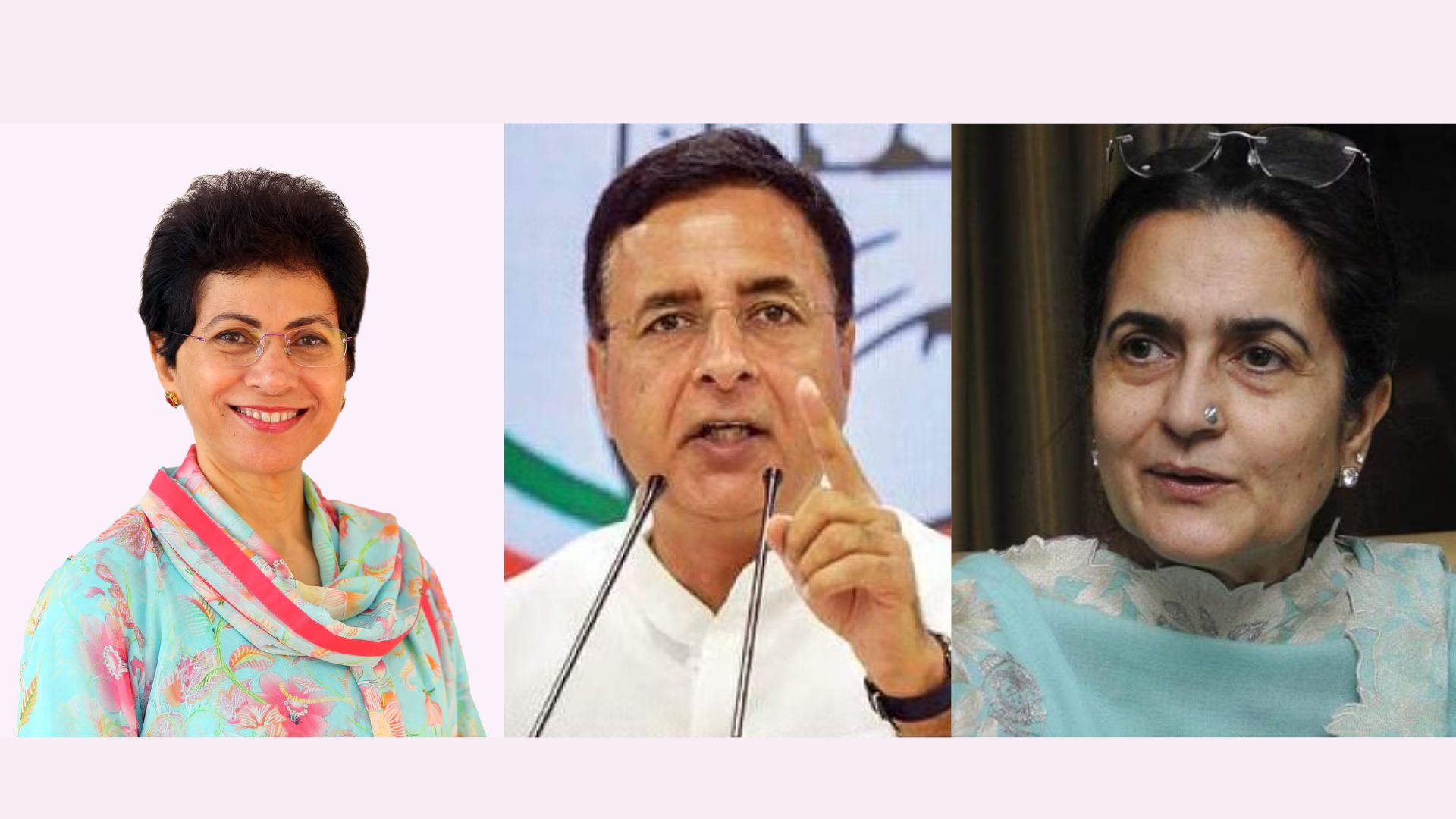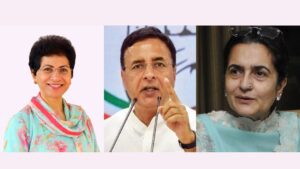Kumari Selja, Randeep Singh Surjewala and Kiran Chaudhary have been known as SRK faction in Haryana politics. The breakup of SRK in Haryana might indicate trouble for Congress. It’s anticipated to worsen rather than improve the state’s situation. More leaders may defect during elections, despite the party’s attempt to appear optimistic about the Lok Sabha results. Internal insecurity among leaders could lead to additional departures. Following a pre-election shock in Delhi, where state president Arvinder Singh Lovely and his supporters joined the BJP, Haryana now faces a similar challenge.
In a sense, the SRK faction posed a challenge to former CM Bhupendra Singh Hooda. Surjewala and Selja, both close to the Gandhi family, were seen as equally influential. However, during the Lok Sabha elections, the ticket distribution showed that Hooda still holds more sway than this faction. All nine seats contested by the party were supporters of Hooda, except for Selja. Kiran Chaudhary was unable to secure a ticket for her daughter.
The consequence was witnessed today, when she joined the BJP along with her daughter. Congress may underestimate the effect of this joining, but it is an irrefutable fact that the repercussion of this move might be visible in the states where elections are to be held. Elections are upcoming in Haryana, Maharashtra, Jharkhand, Jammu and Kashmir, Delhi, and Bihar. The Congress central leadership’s inability to resolve internal conflicts has led to significant losses, particularly due to factionalism. Internal conflicts prevented Congress from retaining states like Madhya Pradesh, Rajasthan, and Chhattisgarh, where factions similar to Haryana’s were prominent. The departure of Jyotiraditya Scindia marked the start of setbacks in Madhya Pradesh, where Congress failed to win any seats in the 2024 Lok Sabha elections following a crushing defeat in the assembly. Despite lasting five years, governments in Chhattisgarh and Rajasthan were lost due to internal disputes between Bhupesh Baghel vs T Singh Deo and Ashok Gehlot vs Sachin Pilot, respectively. In total, Congress won only 9 out of 65 seats in these three states in the recent Lok Sabha elections, underscoring its declining strength due to factionalism.
This pattern persists across most states, allowing the BJP to exploit Congress’s vulnerabilities. Starting in Haryana, the BJP is seeking additional weak points within the state. Similar efforts are underway in Maharashtra, aiming to weaken Uddhav Thackeray’s coalition. Jharkhand also faces challenges, highlighting the broader issues confronting Congress nationwide.
Following the Lok Sabha elections, it appears that the Congress high command lacks the capacity to effect substantial changes. Rahul Gandhi, the party’s paramount leader, is focused on destabilizing the NDA government formed by the alliance. This strategy involves making statements that sow confusion among the government and its allies. Despite Rahul’s upcoming meetings concerning the states heading to polls, it seems unlikely that he can curb factionalism. The party’s inability to sideline Hooda in Haryana means that his opponents will remain active and vocal.








